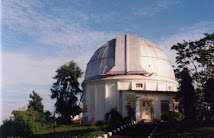
Does ethics have a place in physics? Over fifty years ago, Arthur Koestler, the brilliant Hungarian polymath, speculated that perhaps an ethical concept, purpose, might actually be a property of time. Part of the difficulty here is to define what is meant by ethics. There is first of all ethics as a code of acceptable social behavior, like an agreement by most people in the world that eating your enemies is no longer considered the right thing to do. There can be little argument that this kind of ethics has no place in science.
Then there is John Smith over here who firmly believes that the Bible is the literal word of God and that He is in charge of where creation is going. If physics does not recognize this, then physics is wrong and must find a place for God in the scheme of things. However, over there is Jane Doe who thinks the Bible is suspect because it was written by a lot of cantankerous, opinionated old men.
Women had no part in writing this document, which is probably why God himself is pictured as a man. She does not believe any of it and thinks that arguments about purpose are typical male arguments that lead nowhere. Both John and Jane are probably influenced in their beliefs by their personal histories. Perhaps John came from a very traditional Christian family, while Jane came from a background of rebels and iconoclasts.
It is true that John thinks his beliefs are grounded in a revealed truth that exists quite apart from him and is thus objective, but that is simply his own personal belief, which is contradicted by Jane’s own personal belief. Whatever the subject of their personal beliefs, neither John nor Jane can show any independent proof that their beliefs reflect an outside truth which is axiomatically self-evident.
Modern physics today agrees that what it deals with in the world of natural phenomena (what is measurable and quantifiable) is based on our sense perceptions, and that sense perceptions are fundamentally subjective in nature. That being the case, physics is quite right in excluding any subjective ethical concepts from science, because such ethics are not governed by scientific rules of evidence.
As a leading physicist of the twentieth century, Werner Heisenberg, put it: “Science deals with the objective, physical world…. Religion, on the other hand, deals with the world of values. In science, we are concerned to discover what is true or false; in religion what is good or evil, noble or base. Science is the basis of technology, religion the basis of ethics.”
Ethics can only be thought of in a scientific context when physics has reached the point where the subjective reality of physical phenomena is no longer enough to explain the origin of these phenomena. Physics tried very hard, for instance, to reach the origin of matter within this world. For many years, this origin of matter was thought to be the ultimate, irreducible particle, namely the atom. Then it was discovered that the atom itself consisted of smaller particles, but even these, such as the proton, were then found to be capable of further division into quarks.
It became evident that the size of particles depended on the amount of energy that could be directed at them. If this energy were high enough, even smaller particles would probably result. So physics came up with the concept of the string particle as the ultimate matter particle. It is defined as having only one dimension, length. If it exists at all, therefore, it must exist in some other reality, not our subjective kind which depends on us and our sense perceptions.
Download Links Exam Drill for SNMPTN – Physics
This argument shows that physics has now reached the point where a reintroduction of objective reality is becoming necessary. The book, Galileo’s Shadow, on which this article is based, explores these realities in greater detail and how they effect ethical concepts. If ethics can be removed from human subjectivity and considered in an objective setting, that is a setting which has nothing to do with our human presence, it might then possibly have something to do with physics, if physics has reached the same setting.
Such possibilities are explored in Galileo’s Shadow, which reaches the conclusion that an ethical concept such as purpose might indeed be thought of in connection with science, if it is an inherent, constituent property of the universe. This concept would not “explain” such a purpose in human terms, it would merely point to its likely existence as a sort of vector, or direction, in which the universe is developing. Its relevance to science would lie in the alternative it offers to purely random chance developments which, today, are the only acceptable engines of evolution.
Disusun Ulang Oleh:
Arip Nurahman
Pendidikan Fisika, FPMIPA Universitas Pendidikan Indonesia
&
Follower Open Course Ware at MIT-Harvard University, Cambridge. USA.
Terima Kasih, Semoga Bermanfaat.

